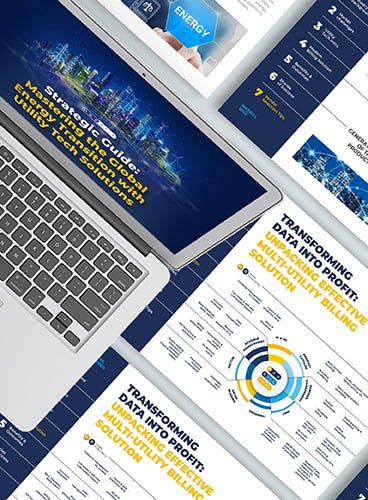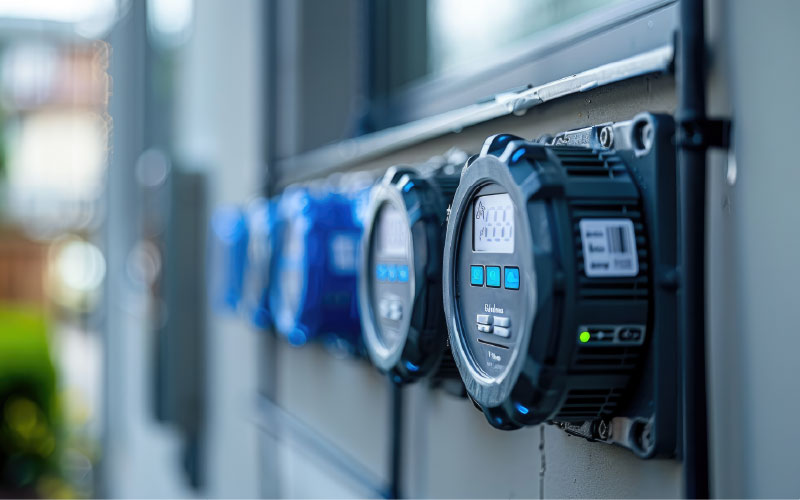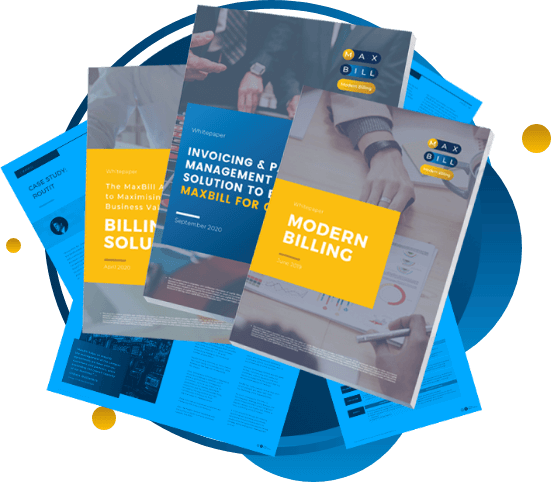Update: November 13, 2025
Utility management software falls under three categories of management: utility bills, assets, and field service.
MaxBill modern billing belongs to utility bill management, encompassing comprehensive billing and revenue management processes. The solution is designed for power suppliers and utilities to meet current market needs and “welcome the future boldly.”
Over the years, MaxBill SaaS billing and CIS have helped scale up, expand product and service lines, transition from utility to multi-utility, operate under multiple business models, add new services (e.g., EV charging) and tariffs (e.g., feed-in ones).
Additionally, (since energy efficiency is getting momentum now), utilities can apply energy efficiency incentives and programmes as well.
In this piece, you will literally learn everything about utility bill management for energy service providers and utilities. You will find the top 5 utility management software that can bring maximum benefits for your business.
Without further ado, let’s dive in.
Key Takeaways
- Modern billing and revenue management support billing for various customer segments.
- Hyperautomation at MaxBill leverages ML and AI to automate complex business processes.
- MaxBill ML predictive models allow for preventing customer attrition and “debt-prone” contracts.
- The utility bill management system delivers enhanced meter-to-cash capabilities, improved customer engagement, and increased flexibility of services.
- MaxBill supports the integration of DERs with self-generation charges, net metering, feed-in tariffs, etc.
- Utilities management software for tenant properties automatically generates accurate invoices for all stakeholders.
- MaxBill offers digital utility management solutions for municipalities, city services, and facilities through a unified, centralised system.

Utility bill management system by MaxBill
Revenue management at MaxBill encompasses a suite of processes designed to streamline financial operations, manage device measurements, bill customers, and collect revenue. This comprehensive approach ensures that all financial transactions are accurately recorded, customers are billed correctly, and revenue is collected efficiently.
Key Processes in Revenue Management
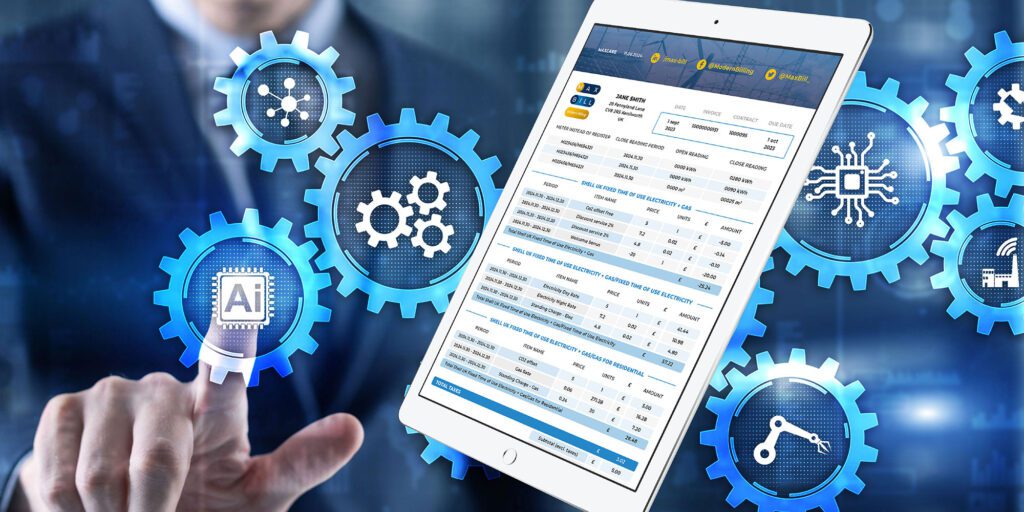
Managing financial processes
This includes the GL Interface, which handles various financial transactions resulting from billing, payments, or other activities. These transactions are posted accurately in the organisation’s General Ledger, ensuring financial transparency and accuracy.
Additionally, managing adjustments and approvals is crucial. This process involves approving any financial adjustments by the appropriate managers before they are applied, which helps maintain accuracy and accountability in financial reporting.
Managing device measurements and billing customers
This includes collecting and processing meter readings, which involves validating and updating these readings to ensure accurate energy billing. The process also includes applying miscellaneous charges that may not be part of the regular billing cycle, ensuring that all charges are accounted for promptly.
Bill management
Managing billing disputes involves handling customer complaints about billing errors and resolving them efficiently. Utility bill management inquiries include responding to customer questions about their invoices and providing necessary clarifications. The regular bill run automates the billing process to generate and distribute invoices regularly, ensuring timely and accurate billing for all customers.
Collecting revenue
This involves managing auto-payments, which automate the collection of payments, reducing manual processing and ensuring timely revenue. Managing collection activities systematically pursues overdue payments to minimize bad debt, while managing credit card payment processes these payments securely and efficiently.
Managing late payment charges applies charges for late payments systematically to encourage timely payments. Performing collection activities involves regular follow-ups and clear communication with customers regarding overdue payments, ensuring that all revenue is collected efficiently and effectively.
Summary: traditionally, revenue management in utilities encompasses managing financial processes, managing device measurements and billing customers, bill management such as bill disputes, and collecting revenue.
Related:
What is a utility bill in your organisation today?
Hyperautomation and AI-driven processes in MaxBill
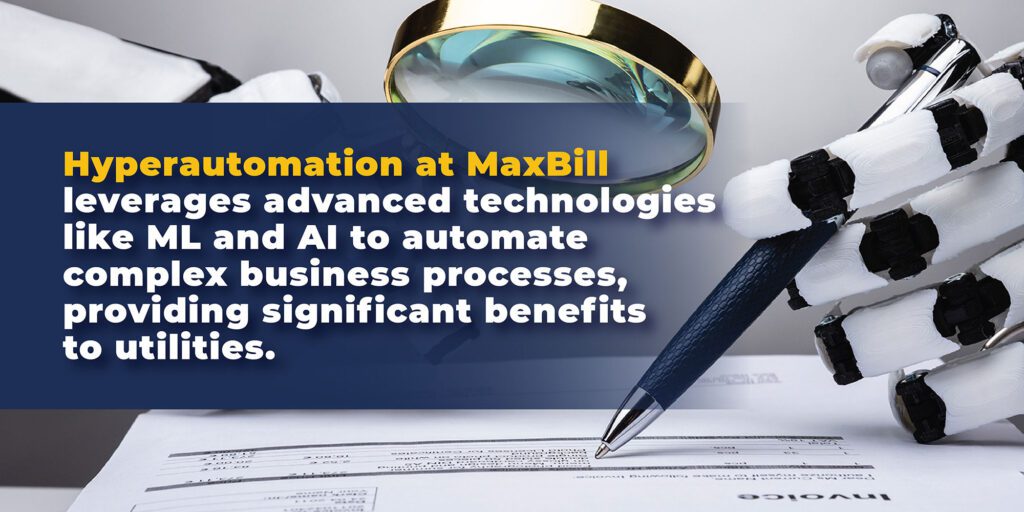
MaxBill utility billing solution always meets market needs and delivers solutions that can address challenges and contribute to companies’ expansion. First and foremost, we provide hyper-automation.
Hyperautomation at MaxBill leverages advanced technologies like Machine Learning (ML) and Artificial Intelligence (AI) to automate complex business processes, providing significant benefits to utilities. By integrating these technologies, MaxBill enables predictive maintenance, which reduces downtime and maintenance costs by anticipating equipment failures.
Hyperautomation also enhances load forecasting, allowing for more accurate demand predictions and optimized resource allocation. Additionally, it streamlines utility billing management and revenue reconciliation processes, ensuring timely and accurate billing while minimizing manual intervention.
This comprehensive approach improves operational efficiency, enhances customer service through AI-driven interactions, and ensures compliance with regulatory standards. Ultimately, hyper-automation empowers utilities to optimize their operations, reduce costs, and provide superior service to their customers.
Going further with Machine Learning and Artificial Intelligence, we provide predictive models that allow us to predict and prevent customer attrition and “debt-prone contracts.” Built-in what-if simulation allows working out and assessing scenarios that can potentially fix the situation with a contract and the existing customer behind it.
Chatbots, digital customer self-service for better customer engagement, and virtual CSRs to make customers even more loyal – we’ve got you covered here as well.
Summary: Modern utility bill management leverages AI and Machine Learning to provide extra value like predicting “at-risk” contracts that are about to fall in debts and preventing customer attrition due to some reasons. Digital self-serve and virtual CSRs explaining invoices are also inegral to utility value supply.
Related:
A Churn Prediction ML Model for Utilities to Increase Customer Loyalty
Machine Learning Debt Prediction Model for Utility Debt Recovery.
Automated Revenue Management System to Maximise Revenue Potential
Bill management solution for utility suppliers
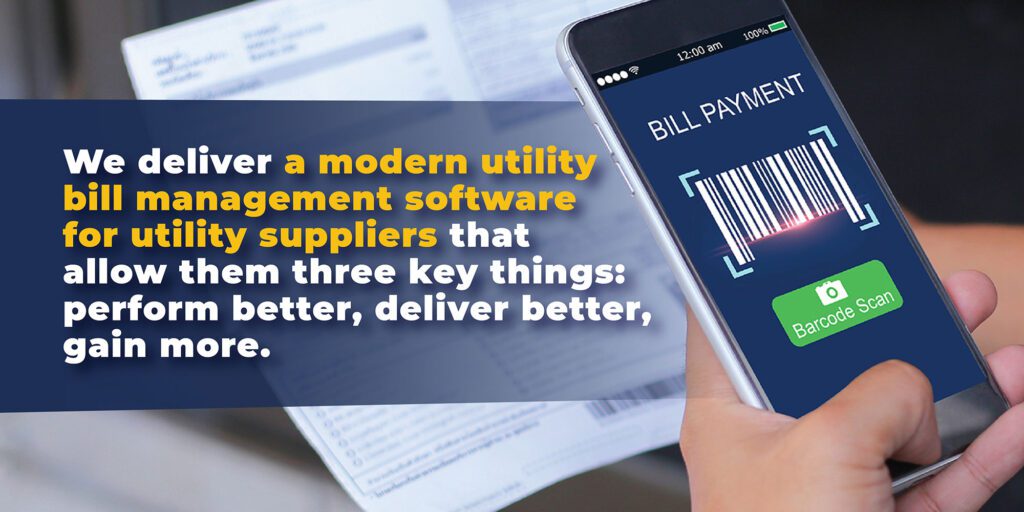
Nowadays, utility suppliers transition from utility to multi-utility suppliers. They want to ‘go the extra mile” with customers and not just deliver commodities but extra services that meet customers’ needs and wants, incl. billing for heating and cooling.
Of course, we realise that utility suppliers differ in each European country. Moreover, such things as the rollouts of smart meters affect the kind of services provided to customers. That’s why modern utility billing and revenue reconciliation come more as a SaaS, modular solution rather than a monolithic solution requiring the transformation of the whole legacy system.
Besides, it “looks scary” for decision-makers who are more into successful pilots’ fulfilment and further corporate ‘evolution’. It’s hard to get buy-in from stakeholders for a complete overhaul of the system.
The dilemma is pretty understandable and yet resolvable.
At MaxBill, we understand the challenges utility suppliers face and deliver a modern bill management system for utility suppliers that allows them to achieve three key things: perform better, deliver better, and gain more.
Summary: Utility suppliers need modern bill management that allows providing multi-services, performing under different business models, being configurable to add new offers with new pricing or add new service lines likes EV charging – all in one comprehensive solution with automated billing.
Related:
Transforming Multi-Utility Management For Market Expansion
Top 5 Challenges Multi-Utility Companies Face & How to Tackle Them?
Utility bill management software for energy suppliers

Energy comes as a service today. The statement is not new, yet it implies businesses adjusting their business models, augmenting revenue streams, striving to be flexible when it comes to getting quick compliance with a new regulation, adding innovative services to the portfolio, etc.
Energy transition has changed the market. So has changed the utility bill management system for energy suppliers. Such a solution, nowadays, prefers enhancing meter-to-cash capabilities, improving customer engagement, and increasing the flexibility of services, particularly emphasising multi-utility support and cloud-based solutions.
MaxBill for energy suppliers stands out as an essential partner in energy transition, offering a SaaS solution that delivers a modular suite of business functions seamlessly integrated through an advanced orchestration platform.
Summary: bill management for energy suppliers allows both seamless covering of core business activities with automation, AI and ML, and scaling up with new business lines or geo expansion.
Related:
Decoding the Global Energy Transition with MaxBill’s Strategic Guide for Utilities
Energy as a Service Provisioning Model: Power of Digitalisation
The Ultimate Introduction to Utility Tech Solutions to Outperform Under the Energy Transition
Platform for retail energy providers
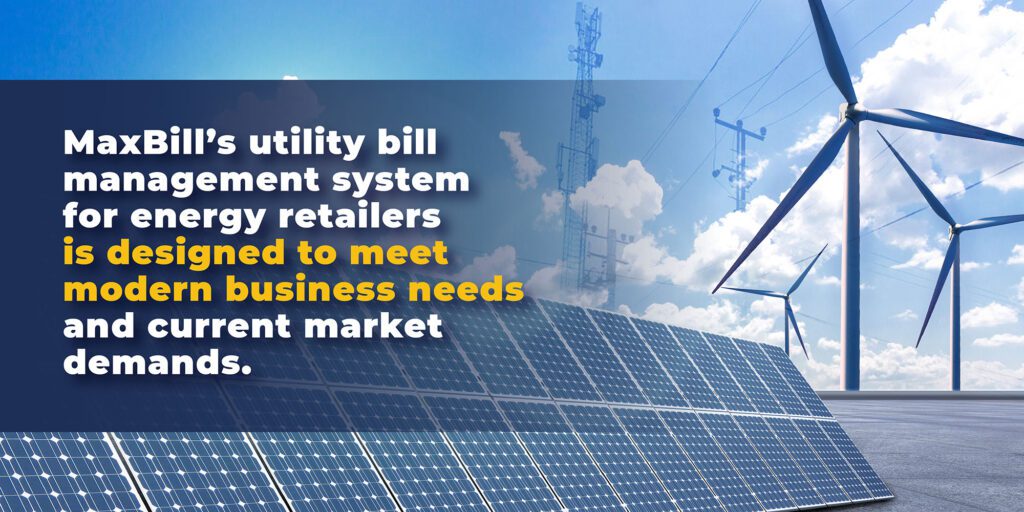
Imagine a service provider installing and managing a battery storage system at a customer’s location. The customer then pays for the energy used from the storage system, which proves especially beneficial during peak demand times or power outages.
Or, consider subscription-based lighting solutions. These energy-as-a-service offerings provide businesses and industries with a complete lighting service through a subscription model.
The service provider handles the installation and maintenance of the lighting infrastructure, while clients pay a regular monthly fee for using the lighting services.
The question is, does the organisation have modern bill management software for energy retailers that сovers appropriate billing and revenue management capacities? Whatever the business model and kind of energy product and services business has in its portfolio, MaxBill’s system for energy retailers is designed to meet modern business needs.
Summary: retail energy providers should look for bill management solution that covers all modern energy-as-a-service business models.
Related:
Everything about EV Charging Prices Across Europe.
What Makes a Perfect EV Charging Billing Software & Revenue Settlement?
Half-Hourly Settlement: Is Your Utility Business ‘Reform-Able’?
Dynamic Energy Contracts to Harness Price Volatility and Get Loyal Customers
MaxBill supports billing for different customer segments

Modern billing and revenue management supports billing for various customer segments, including residential customers, small and midsize businesses (SMB), and large commercial and industrial (LC&I) clients.
Nowadays, B2C energy providers become B2B energy providers offering Power Purchase Agreements to manufacturers and commercials. Whatever the contractual relationship a business has, MaxBill can cover it for commercial and industrial.
Summary: billing different customer profiles is the number one feature of modern bill management solution.
Related:
Covering Half-Hourly Meters for Large Businesses and Industries.
Utility invoice management software for public utilities
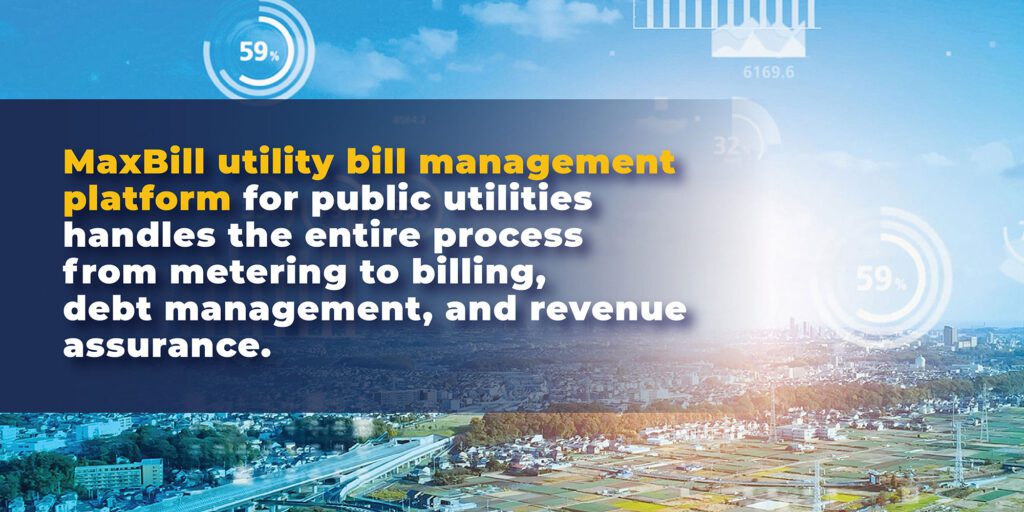
Public utilities are a matter of interest for MaxBill. The fifth generation of the product allows us to deliver our utility invoice management platform to public utilities, factoring in their peculiarities, and realities they exist in (like Ofgem regulations’ coming up, energy caps, etc.)
Our utility invoice management platform for public utilities is a comprehensive meter-to-cash solution that offers public utilities an integrated platform to manage a variety of services, including water, electricity, natural gas, and telephone service. It handles the entire process from metering to billing, debt management, and revenue assurance.
MaxBill excels in performing rapid and precise calculations, producing clear and transparent invoices. Additionally, it is ideal for managing relationships with partners, vendors, and customers, helping to lower service costs and boost customer satisfaction.
Summary: bill management for public utilities covers core business activities, regardless of the area where services are provided, and helps manage participants and revenue sharing of all supply chain’s participants.
Utility management platform for independent utilities

Independent utilities can be more “creative” in their service provision. What if you’re an independent utility looking to integrate Distributed Energy Resources (DER) with features to support self-generation charges, net metering, feed-in tariffs, capacity and congestion charges, and community energy programs?
Does an existing revenue and utility bill management system for independent utilities work in your case? Whatever expansion endeavour you entertain, such a system should be adaptable for delivering desired business outcomes.
Summary: independent utilities are more into DERs integration, so bill management solution allows seamless integration and automated, accurate invoicing and revenue reconciliation.
Utilities management software for tenant properties

Tenant billing is MaxBill’s cup of tea! This year is the year of tenant billing for Housing Associations (if talking about our UK clients!). We’re aware of the housing crisis across the country. Housing Associations struggle to keep their charitable status and activate their business efforts with market rent.
Whatever the business model is in a particular housing association, we can support it with our tailored utilities management software for tenant properties. MaxBill streamlines the processing of tenant data for both metered and non-metered services such as water, heat, chill, electricity, and gas, as well as standing charges like admin fees, gas standing charges, and meter maintenance.
Utilities bill management system for tenant properties allows automatically to generate accurate invoices for all stakeholders, including leaseholders, housing associations, managing agents, and tenants.
MaxBill best tenant utility billing software for commercial buildings and residential fully covers the tasks of service companies providing utility bill management services. Read the CEP case study
Our SaaS solution integrates CRM, billing, and reading management into a single platform, offering automated and comprehensive control over property and customer processes. Additionally, it supports the onboarding of new commercial partners to drive business growth.
Summary: Backed with a 30-year experience in tenant billing, MaxBill utility bill management covers all-type tenant businesses.
Related:
The Ultimate Billing System for Housing Associations in the UK.
Digital utility management solutions for municipalities
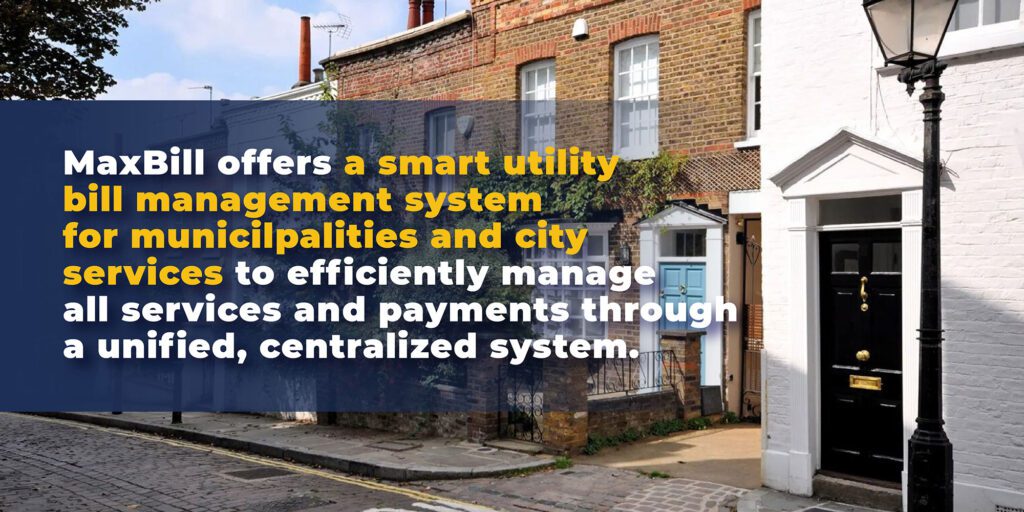
Tell us what are your municipality’s peculiarities. What are the related regulations in your country? Does an existing software for municipalities meet your current needs and future requirements?
MaxBill offers digital utility management solutions for municipalities and city services and facilities to efficiently manage all services and payments through a unified, centralized system.
It supports both flat rate and consumption-based billing, handles one-time and recurring charges, and manages meter connections, disconnections, and relocations. Additionally, MaxBill facilitates charging and billing penalties as well as processing automatic payments.
Summary: We notices that many municipalities use Excel-based billing. However, to add more services and increase customer satisfaction, they should consider modern billing solutions with automation and digital services to consumers.
Invoice system for heating networks and cooling
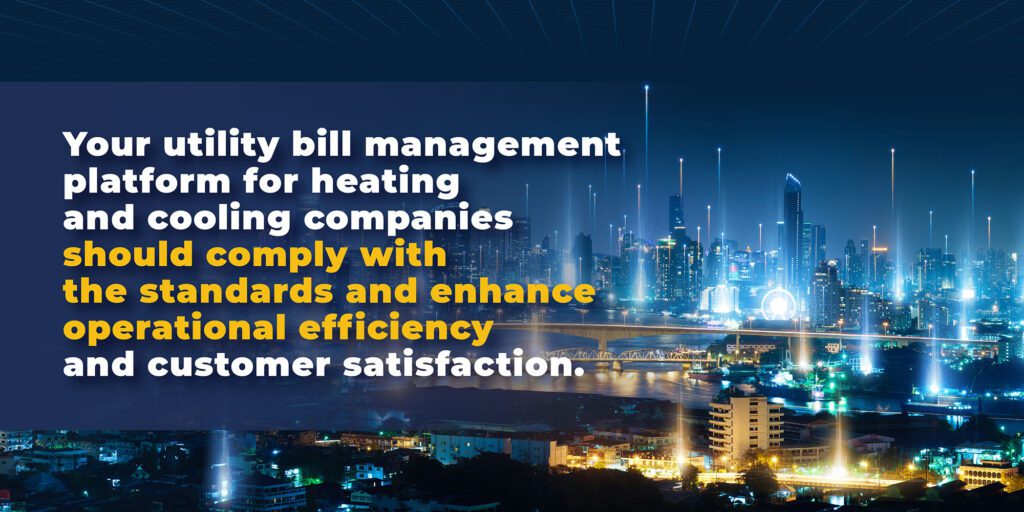
The ultimate utility invoice system for heating networks delivered by MaxBill is robust and adaptable to address the evolving regulatory landscape and the specific needs of the sector.
With recent regulations such as the Heat Networks Regulation and updates to the EU Energy Efficiency Directive, it is crucial that your platform for heating and cooling companies not only complies with these standards but also enhances operational efficiency and customer satisfaction.
MaxBill’s meter reading and billing software is designed to meet these demands by integrating advanced functionalities that support both standard and smart meters, handle various billing methodologies, and ensure accurate, transparent invoicing for all stakeholders involved, including leaseholders, housing associations, and tenants.
Moreover, an effective system for heating networks and cooling companies must offer comprehensive meter reading management, support for diverse meter types, and seamless integration with order management processes.
It should include robust validation systems to ensure data accuracy, provide flexible options for updating and assessing meter readings, and generate precise estimations for missing data.
By incorporating features like automated billing cycles, detailed consumption records, and efficient debt management workflows, MaxBill for heating and cooling companies ensures fair billing practices and helps reduce operational costs.
This level of sophistication not only meets current energy efficiency regulations but also facilitates business growth by onboarding new commercial partners and improving overall customer satisfaction.
Summary: Heating networks need to comply with newcoming regulation and energy efficiency directives. This goes beyond ordinary invocing and suggests advanced functionalities to support AMI, different billing methods, data handling systems, debt recovery, etc.
Top 5 utility management software 2026
MaxBill ultimate utility bill management
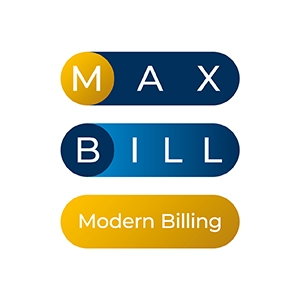
Overview
MaxBill modern utility bill management platform has it all: billing, CIS, meter reading, and revenue management in a single SaaS solution for energy and multi-utility providers.
It automates the full meter-to-cash lifecycle across services like water, gas, electricity, heating & cooling, waste, EV charging, and tenant billing. With it, utilities cut errors, simplify operations, and grow efficiently.
MaxBill has a powerful R&D team keeping pulse on the energy market trends. A recently introduced AI billing is a real game-changer for utilities willing to go live in weeks, not motnhs, get fast first right bill, craft, commercialize and monetize quickly on new offers.
Key features
– Product and service catalog management
– Meter-to-cash workflow automation
– CRM & customer lifecycle management
– Revenue management and financial integration
– AI/ML-driven insights
– Multi-service and multi-segment support
– Scalability, flexibility and deployment options
– Detailed reporting, dashboards & analytics
Landis+Gyr utility management software
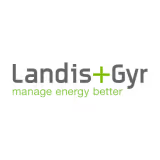
Overview
It provides a comprehensive utility software platform that unifies smart-metering, grid-edge data management, and IoT connectivity.
Its core solutions—such as the MDMS and Gridstream® Connect—help utilities collect, validate, and analyse multi-commodity data while integrating millions of devices across electric, gas, water, and heat networks.
This enables utilities to improve billing accuracy, strengthen operational efficiency, scale new services, and support advanced grid and customer-centric programs.
Key features
-Unified Data Repository & Standardisation
– Validation, Estimation & Editing (VEE)
– Virtual and Net-Metering Support
– Exception Management & Workflow Orchestration
– IoT / Communications Flexibility
– Edge & Cloud Application Ecosystem
– Analytics & Asset/Network Insights
– Flexible Deployment & Integration
– Consumer Engagement Capabilities
Brightlayer utility asset management software
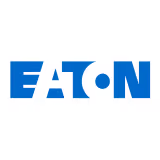
Overview
Brightlayer is Eaton’s integrated software and services suite designed for intelligent power and energy management, uniting assets, real-time data and analytics to optimize performance across infrastructure, industry and utilities.
By harnessing operational data from equipment to enterprise, Brightlayer helps organisations reduce downtime, cut energy waste and enhance safety and efficiency in the face of evolving electrification and digitalisation trends.
Key features
- Real-time data capture and insights
- Modular layered architecture
- Edge computing & low-latency analytics
- Unified visibility across IT and OT
- Advanced monitoring, alarms & root-cause analysis
- Asset & lifecycle management
- Multi-commodity energy & sustainability support
- Workflow, capacity planning & what-if analysis
Infor utility management software
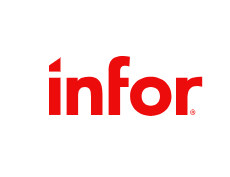
Overview
Infor is a purpose-built cloud platform that integrates financial, operational, asset, workforce and customer processes for electric, gas, water, wastewater and renewable utilities.
It empowers utilities to optimise asset lifecycles, streamline meter-to-cash workflows, enhance customer service and maintain regulatory compliance in a dynamic environment of aging infrastructure and evolving demand.
Key features
- Asset management & lifecycle-extension
- Cloud-based ERP and integrated operations
- Meter-to-cash billing automation
- Workforce and field-crew optimisation
- Customer-service and self-service capabilities
- Regulatory-compliance and risk-management support
- Multi-commodity & multi-segment support
- Analytics & insight
- Scalable cloud architecture
Engie Impact utility cost management
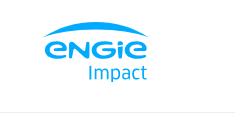
Overview
ENGIE Impact’s Utility Expense Management offering streamlines the capture, validation and analysis of utility bills (energy, water, waste) across an enterprise’s sites. It provides a strategic layer thanks to access to audited resource-data and advanced insights, enabling organisations to turn operational expense data into cost-and-sustainability intelligence.
Key features
- Centralised utility-bill ingestion
- Data-validation and audit trail
- Expense-analytics and strategic insights
- Vendor- and rate-schedule management
- Cross-commodity capability
- Scalability for global deployments
- Integration with sustainability and carbon-reporting workflows
Related:
How to manage utility & energy bills: Guide for utility companies.
Heat Billing Services by MaxBill: We Know Ins and Outs in the Sector.
Billing for utility management providers FAQ
What is the tenant utility billing software for commercial buildings?
Tenant utility billing software for commercial buildings is the tool for property management companies and similar services to actually bill commercial buildings for tenant and utility services. MaxBill delivers tenant utility billing services to all type of tenant businesses.
Does MaxBill deliver billing solutions to a bill management company and bill management services?
Bill management companies and bill management services can use MaxBill utility billing solution for billing and revenue management of their core activities.
What is bill management software?
Bill management software can be any tool that helps manage funds. MarxBill specializes in billing services for B2C, B2B energy and utility service providers.
What is a bill management system?
Like a bill management software, a bill management system can be the tool, approach, or methodologies to improve the financial state of an individual or organisation. At MaxBill, we deliver modern billing solutions to energy and utilities to improve operations, ensure healthy cash flow and customer satisfaction.
